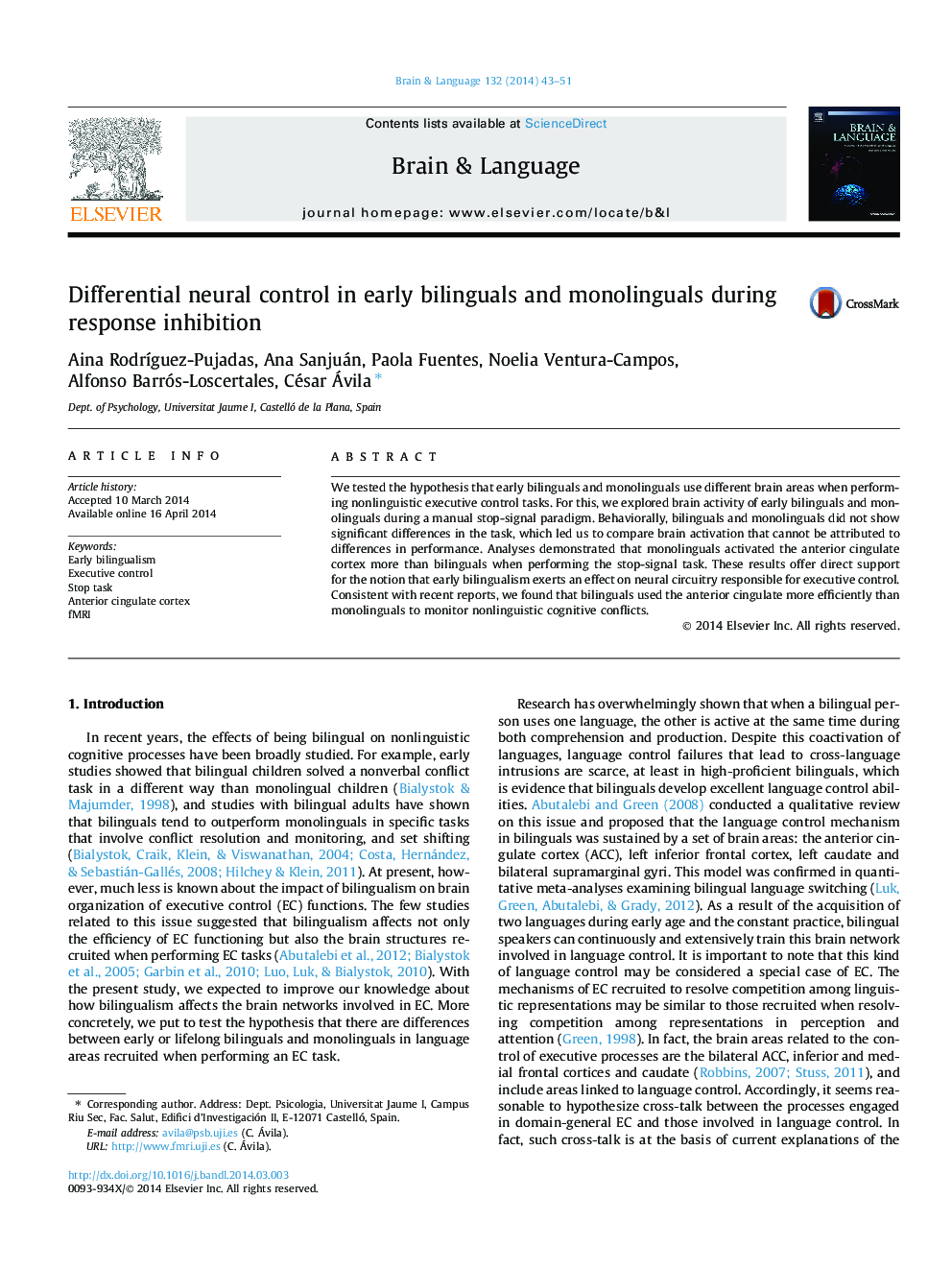| Article ID | Journal | Published Year | Pages | File Type |
|---|---|---|---|---|
| 7284861 | Brain and Language | 2014 | 9 Pages |
Abstract
We tested the hypothesis that early bilinguals and monolinguals use different brain areas when performing nonlinguistic executive control tasks. For this, we explored brain activity of early bilinguals and monolinguals during a manual stop-signal paradigm. Behaviorally, bilinguals and monolinguals did not show significant differences in the task, which led us to compare brain activation that cannot be attributed to differences in performance. Analyses demonstrated that monolinguals activated the anterior cingulate cortex more than bilinguals when performing the stop-signal task. These results offer direct support for the notion that early bilingualism exerts an effect on neural circuitry responsible for executive control. Consistent with recent reports, we found that bilinguals used the anterior cingulate more efficiently than monolinguals to monitor nonlinguistic cognitive conflicts.
Related Topics
Life Sciences
Neuroscience
Biological Psychiatry
Authors
Aina RodrÃguez-Pujadas, Ana Sanjuán, Paola Fuentes, Noelia Ventura-Campos, Alfonso Barrós-Loscertales, César Ávila,
